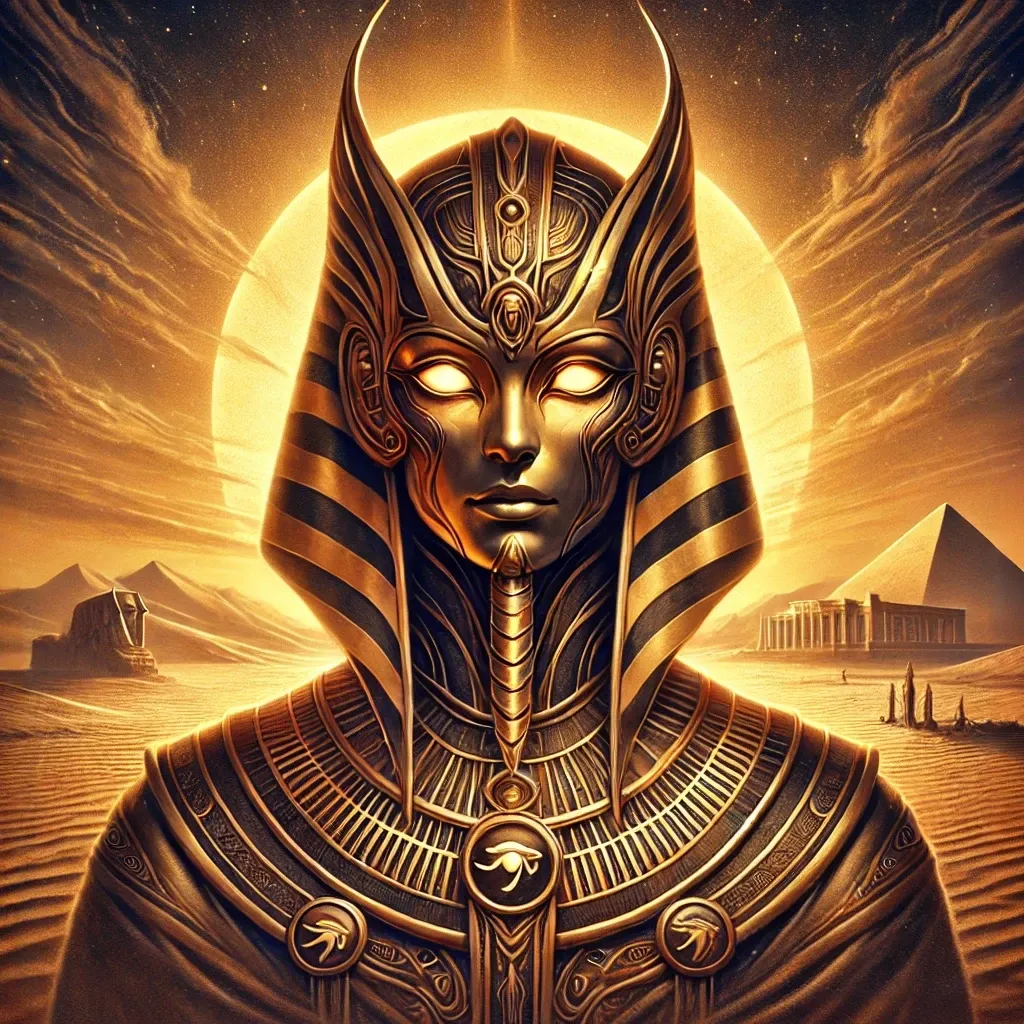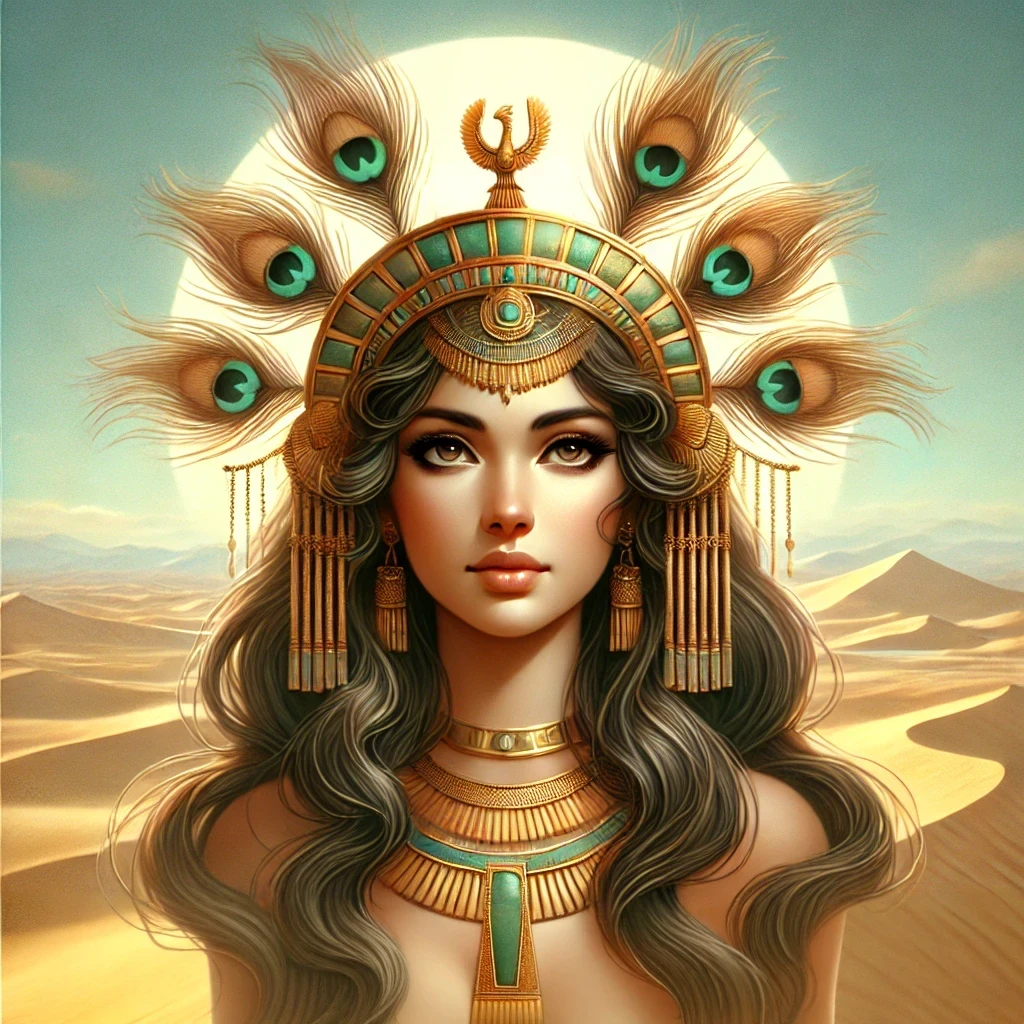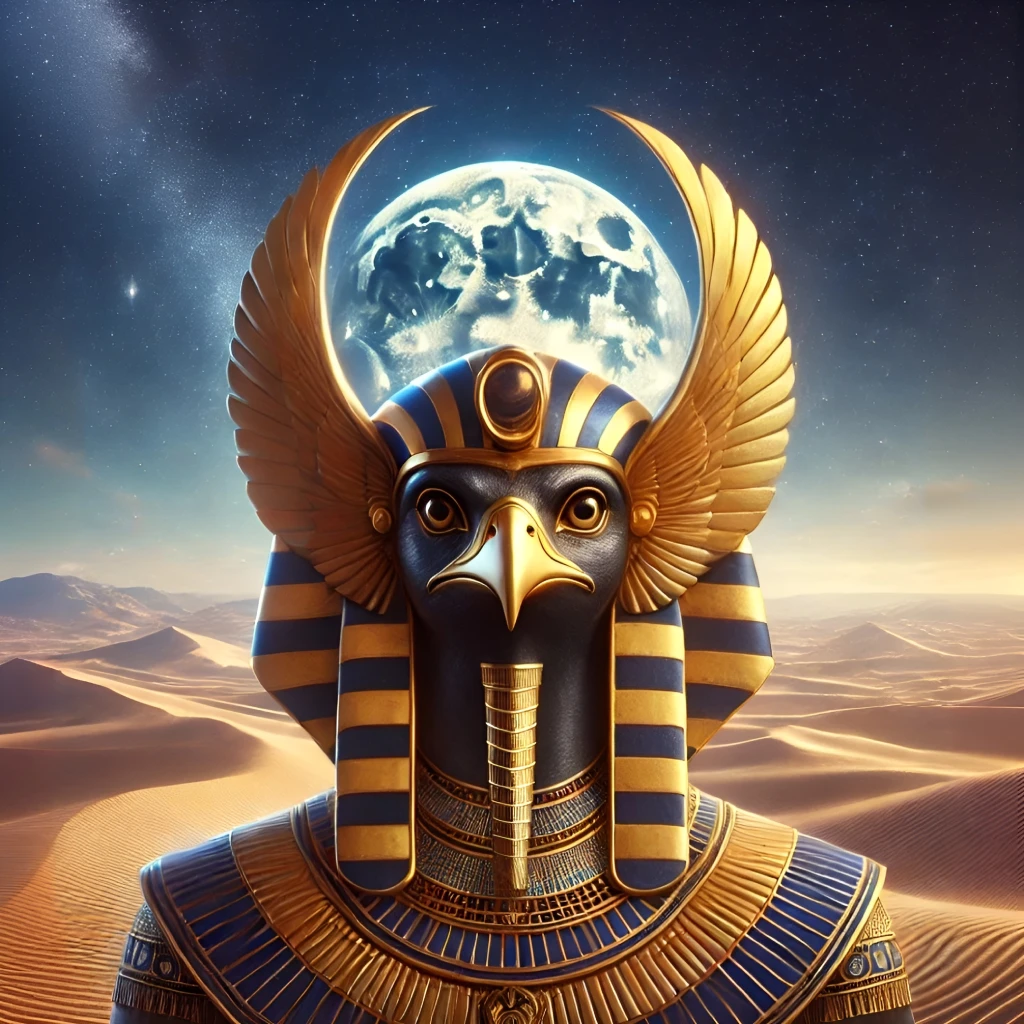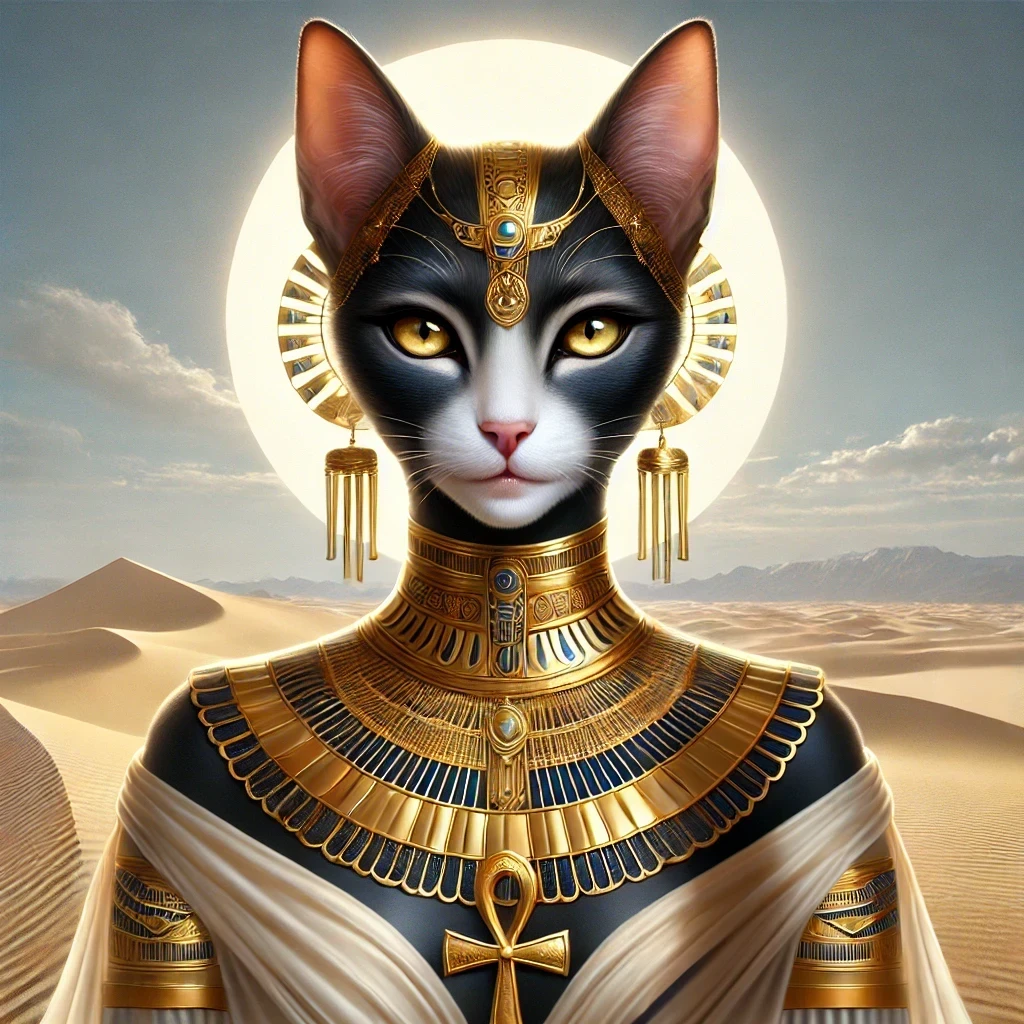Atum, also rendered as Atem, Temu, or Tem, is one of the most prominent deities in ancient Egyptian mythology. Known as the “Complete One,” he was often associated with creation and the setting sun. The name “Atum” derives from the root word “tm,” meaning “to complete” or “to finish,” symbolizing the deity’s role in the cosmic cycle. Referred to as the “Lord of Totality” and “Father of the Gods,” this deity occupies a central place in the ancient narratives surrounding the origins of existence.
Origins
Historical Context
Atum’s origins trace back to Heliopolis (Iunu), one of the most significant religious centers in ancient Egypt. Heliopolis housed the Ennead, a grouping of nine primary gods, with Atum positioned as their patriarch. First referenced in the Pyramid Texts, he was believed to have emerged from the primordial waters of Nun, marking the beginning of the cosmos.
Cosmological Role
In creation myths, he played a pivotal role as the primeval being who brought forth the first divine pair, Shu (air) and Tefnut (moisture), through an act of self-creation. This act symbolized both unity and duality, laying the foundation for the complex relationships among Egyptian deities.
Appearance
Depictions in Art
The deity was often depicted as a man wearing the double crown of Upper and Lower Egypt, signifying his dominion over the unified kingdom. In some representations, he appeared with a solar disk, emphasizing his connection to the sun’s cyclical journey.
Alternate Forms
Atum also appeared in various animal forms, such as a snake, a lion, or a mongoose. These manifestations highlighted his adaptability and association with both creation and destruction.
Abilities
Creative Powers
Atum’s primary power lay in his ability to create life from nothingness. As the primordial creator, he symbolized self-sufficiency and the transformative forces of the universe.
Role in Renewal
In addition to creation, he was linked to the sun’s nightly descent into the underworld. Each evening, he embodied the setting sun, guiding it through the perilous Duat to ensure its rebirth at dawn.
Myths
The Self-Created God
One of the most famous tales recounts how Atum emerged from the chaotic waters of Nun, standing upon the primeval mound (benben). From his own essence, he brought forth Shu and Tefnut, setting the stage for the creation of the world.
Protector of the Sun
In other stories, he is portrayed navigating the solar barque through the underworld, battling chaos in the form of the serpent Apophis. This eternal struggle underscored his role as a guardian of cosmic order.
Symbolism
Solar Connections
Atum symbolized the setting sun, embodying the conclusion of the day and the promise of renewal. His solar associations reinforced his link to the cyclical nature of life and death.
Sacred Animals and Objects
The serpent and the scarab were sacred to him, representing rebirth and eternity. Additionally, the benben stone, central to Heliopolitan theology, symbolized his emergence from the primordial waters.
Relationships
Divine Lineage
As the progenitor of Shu and Tefnut, Atum was indirectly responsible for the entire Ennead. His lineage included Geb (earth), Nut (sky), and their descendants, tying him to the pantheon’s most influential figures.
Connections to Ra
Over time, his identity merged with that of Ra, forming Atum-Ra. This amalgamation reinforced his association with the sun and elevated his status as a universal deity.
Trivia
- Atum’s act of creation was sometimes described as spitting or sneezing out Shu and Tefnut, reflecting the physicality of ancient Egyptian cosmogony.
- The deity’s name appeared in royal titles, signifying completeness and divine legitimacy.
- He was invoked in funerary texts to guide the deceased through the afterlife.
- Some ancient texts depicted him as an aged figure, emphasizing his role as a wise and eternal being.
- His presence was integral to temple rituals, particularly in Heliopolis, where he was venerated alongside the other Ennead members.



